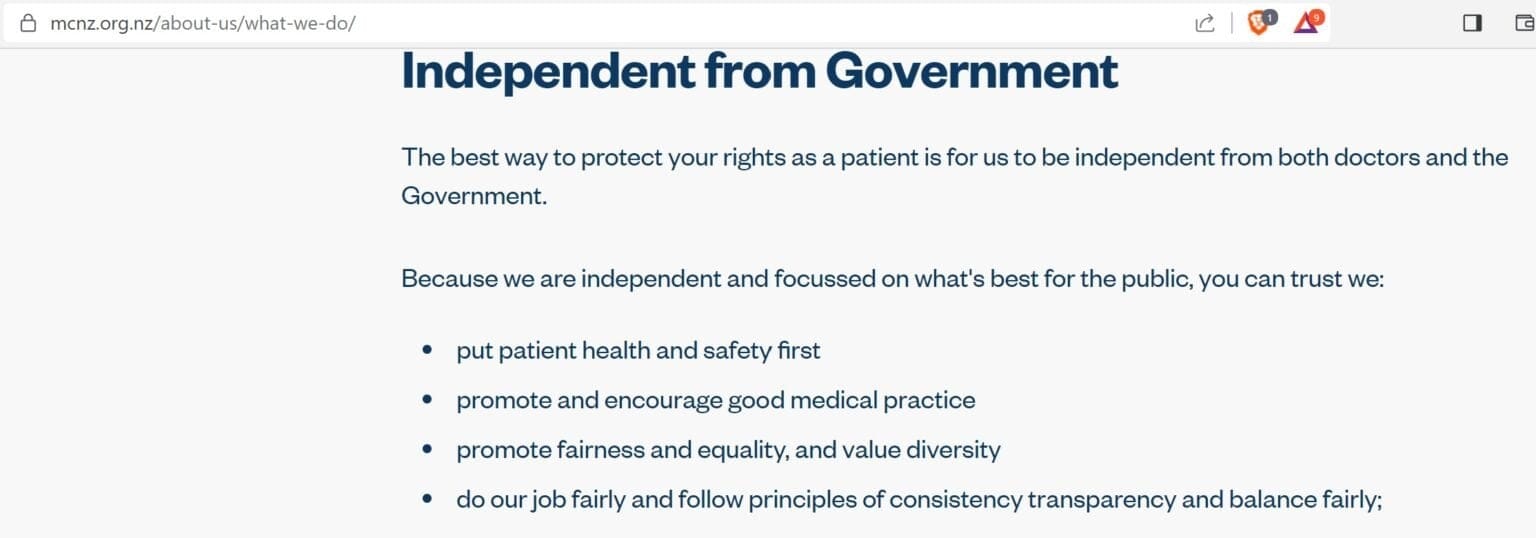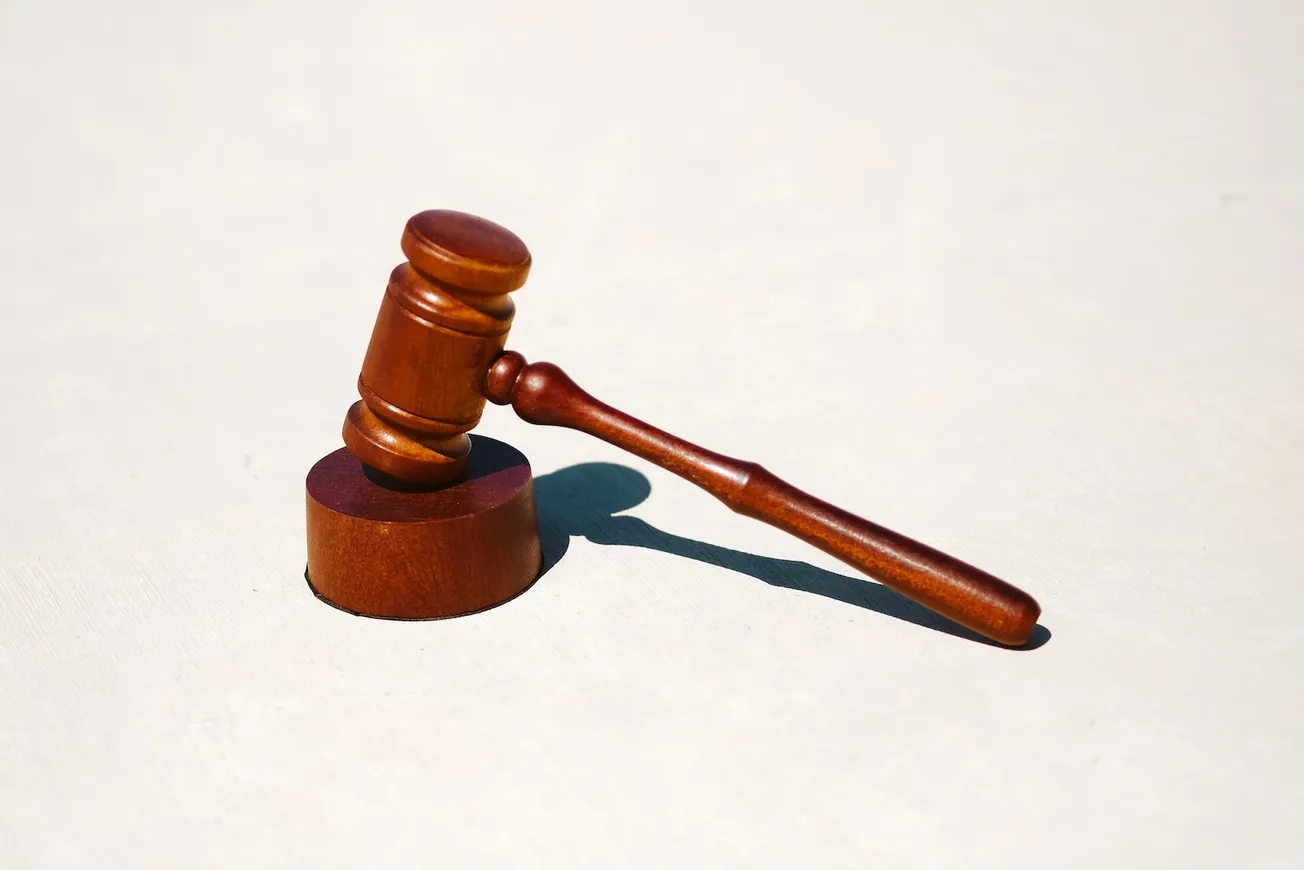Table of Contents
New Zealand Doctors Speaking Out With Science
New Zealand Doctors Speaking Out with Science (NZDSOS) has recently filed for a High Court Judicial Review of the use of the “Guidance Statement” by the Medical Council of New Zealand (MCNZ) to threaten doctors into obedience to the government dictates. The MCNZ has investigated and prosecuted those who disagreed or voiced concerns about the Covid response, as well as those doctors who prescribed ivermectin. Some have been forced out of medicine.
Our lawyers are confident that the MCNZ acted unlawfully.
Fundamental to the protection of the people of New Zealand is the question of whether the MCNZ has lost any moral authority it had, and whether it is now just another arm of the government – one that has lost the trust of it’s people and is pushing draconian laws through in a desperate flurry of authoritarianism before being unceremoniously thrown out as the worst government this country has seen.
Has the MCNZ Lost all Moral Authority?
When an individual goes to see a doctor, trust is needed. Individuals cannot question or research every action and recommendation made in a consultation. Furthermore, not only is trust in the doctor necessary, but also in the supervision of doctors, which ultimately falls to the Medical Council of New Zealand (MCNZ). It would be untenable for both doctors and patients if it was the patient’s responsibility to check the doctor’s degrees and continuing professional development. An authority that oversees the fitness of doctors to practice is thus required.
However, what happens if the authority, the MCNZ, is no longer trustworthy?
The Role of the MCNZ in New Zealanders’ Health
The MCNZ states that it’s role is to “protect and promote public health and safety in New Zealand” and that its funding comes from the registration fees that doctors pay. The Council is governed by the Health Practitioners Competence Assurance Act 2003 (HPCAA), which requires it to authorise the registration of doctors, review their ongoing competency and set standards of clinical and cultural competence, and specifically charges it with upholding medical ethics. The MCNZ is required to issue Annual Practicing Certificates for every practicing doctor. Furthermore it may only exercise its rights and power for the purpose of performing its functions.
It is interesting that the HPCAA states that its principle purpose “is to protect the health and safety of members of the public” (our italics). However, the MCNZ states that its role is to protect and promote public health and safety. Is the MCNZ less concerned about individuals, justifying its actions as being for the good of all (the public)? Is this in line with the intent of the HPCAA?
Is the MCNZ Independent From the Government?
The MCNZ has 11 members on its council, plus chair Dr Curtis Walker, registrar and the CEO. It is a requirement that three members of the council are lay people. Concerningly, the HPCAA states that the minister may appoint up to 14 members by notice in the Gazette (read, by decree) while only one health practitioner needs to be elected by its members! Council members are elected for three years.
We note that up until some time in 2022, the lay people consisted of a lawyer, a consultant and a businessman who had also been a member of the osteopathic council. The lay people on the council are now made up of three lawyers and a consultant who has worked mainly for government and NGOs. There is now no “ordinary” New Zealander representing patients on the Medical Council. We wonder if the Medical Council or the Minister of Health and/or overseas interests are deliberately moving the focus of the council away from the medicine provided by doctors to individual patients to that of medicine that can be coerced onto individuals and whole populations, in the name of public health.
NZDSOS has considerable confirmed evidence of cooperation between the Ministry of Health (MoH) and the MCNZ.
In the middle of the pandemic, as some doctors were trying to offer promising treatments, Dr John Crawshaw, Medical Officer of Health in the Ministry of Health, wrote directly to Dr Curtis Walker, chair of the MCNZ informing him of doctors trying to import ivermectin, a perfectly legal action. Dr Crawshaw went on to state that ivermectin is not authorised for the treatment of Covid (we note it didn’t need to be) and the importation of this could be an offence under the Medicines Act. It is worth noting that no doctors have been charged under this act, but that the MCNZ are undertaking their own investigations following this commuication.
Furthermore, an OIA has uncovered correspondence between Dr Ashley Bloomfield, the then Director General of Health, and Joan Simeon, the MCNZ CEO, regarding an NZDSOS member making videos about Covid. Ms Simeon states that there is a potential risk of harm to public health (note again she does not mention individuals but the all-encompassing public), a statement that comes very close to a medical assessment by a lay person. She goes on to state that the MCNZ would like to work with the MoH in their approach to this doctor.
On a side note the OIA correspondence linked above also states that the “vaccine” would be independently tested and that vaccination would not be mandatory. Both of these statements would be shown to be false, and likely knowingly so at the time. Dr Bloomfield goes on to reassure recipients of his email that Medsafe’s approval is the culmination of “rigorous assessment” and informed “by the most up-to-date medical and scientific data”. We now know that Medsafe declined to approve the vaccine and referred its approval to New Zealand Medicine Assessment Advisory Committee, another shadowy body “advising” the government.
On their website the MCNZ states that is is independent from government – to protect our rights. Oh the irony.

Not only did Dr Curtis Walker fail to defend the right of doctors to prescribe and import medication for off-label use, but he failed to protect New Zealanders. It is hard not to see an overly close relationship between this government and the MCNZ.
Did the MCNZ Act Outside the Letter and Intent of the HPCAA?
As noted above, the MCNZ may only exercise its rights and power for the purpose of protecting the health and safety of members of the public. The MCNZ does not have the power to tell doctors what they are allowed to say or prescribe, outside of existing statutes like the Bill Of Rights Act and the Medicines Act and prescribing regulations.
In issuing the now notorious “Guidance Statement” on Covid-19 vaccination, it firmly placed itself between patients and doctors, and their right to free speech. Furthermore, if doctors were to follow the guidance statement, they would be in breach of the MCNZ Statement on Informed Consent which was changed in 2021, interestingly, and now differs from the chapter on Informed Consent in the Cole’s Medical Practice in New Zealand.
Moreover, the MCNZ used its “Guidance Statement” on Covid-19 vaccination in action against doctors who questioned the country’s Covid response. This statement is in no way legally binding but they have proceeded as if it is, presumably to threaten other doctors into obedience. The courts have told them they should stop. We have seen no evidence of this as they continue to investigate doctors, send them to the Health Practitioners Disciplinary Tribunal and to “re-education”.
What Other Organisations Influence the MCNZ?
We have written previously about the likely influence of a shadowy body, the Federation of State Medical Boards (FSMB) and it’s international arm, the International Association of Medical Regulatory Authorities (IAMRA). These are private organisations whose secretive donors are very likely promoting pharmaceutical interests in the bodies that govern not only US doctors, but doctors across the world.
The MCNZ CEO, Joan Simeon, is chair-elect of IAMRA and Dr Curtis Walker, the chair of the MCNZ, is a member of the FSMB Workgroup on Diversity, Equity and Inclusion in Medical Regulation and Patient Care.
How is it possible that being part of private organisations that seek to influence medical regulation across the world is not a conflict of interest, or indeed thinly veiled corruption?
The MCNZ Has Lost in Court – Every Time
In choosing to toe the government line regarding the Covid response, instead of protecting New Zealanders, the MCNZ has been found to be overreaching its authority in suspending three NZDSOS doctors. Doctors Alison Goodwin, Peter Canaday and Matt Shelton all had their suspensions reversed. This is even more significant given the apparent judicial leniency towards authorities in the “emergency of the pandemic”.
They will now be required to justify their actions using the “Guidance Statement” to investigate and prosecute doctors.
Medicine and Trust
It is a sad state of affairs that many Kiwis no longer trust medicine and by extension, the MCNZ. Individuals no longer trust their own doctors or the New Zealand medical system. Even sadder is that they may not even get through the door if they needed to, given the sorry state the Covid response has caused in health care.
Indeed, we have reports of many complaints to the MCNZ regarding registered doctors who provided information supporting the Covid response that could be deemed false or medically harmful during the pandemic. We know that these complaints, if they were in line with the government’s actions, were binned well before they reached the council members.
How is it possible that doctors asking questions regarding the Covid response were investigated on flimsy complaints, but doctors who encouraged the narrative were not? How is it that politicians, media personalities, influencers, sports personalities etc who were all practicing medicine without a licence, faced no sanctions or consequences, while qualified, experienced doctors were silenced and not able to provide their professional medical opinions? How are New Zealanders to trust the MCNZ? It appears that the MCNZ has lost both legal and moral authority to protect the health of New Zealanders and administer doctors.
In exploring a just and fair medical system, NZDSOS has examined ethical and moral factors that go beyond providing evidence-based medicine (important of course), while providing competent health care. It calls on the current Medical Council members to immediately step down and offers its services to guide the process of setting up better and fairer practitioner oversight and protection of members of the public.
If you share our concerns, please talk to the candidates in this year’s election. Ask them how they are going to reform the MCNZ so that it becomes a truly independent authority that Kiwis can trust to guard medical ethics.









